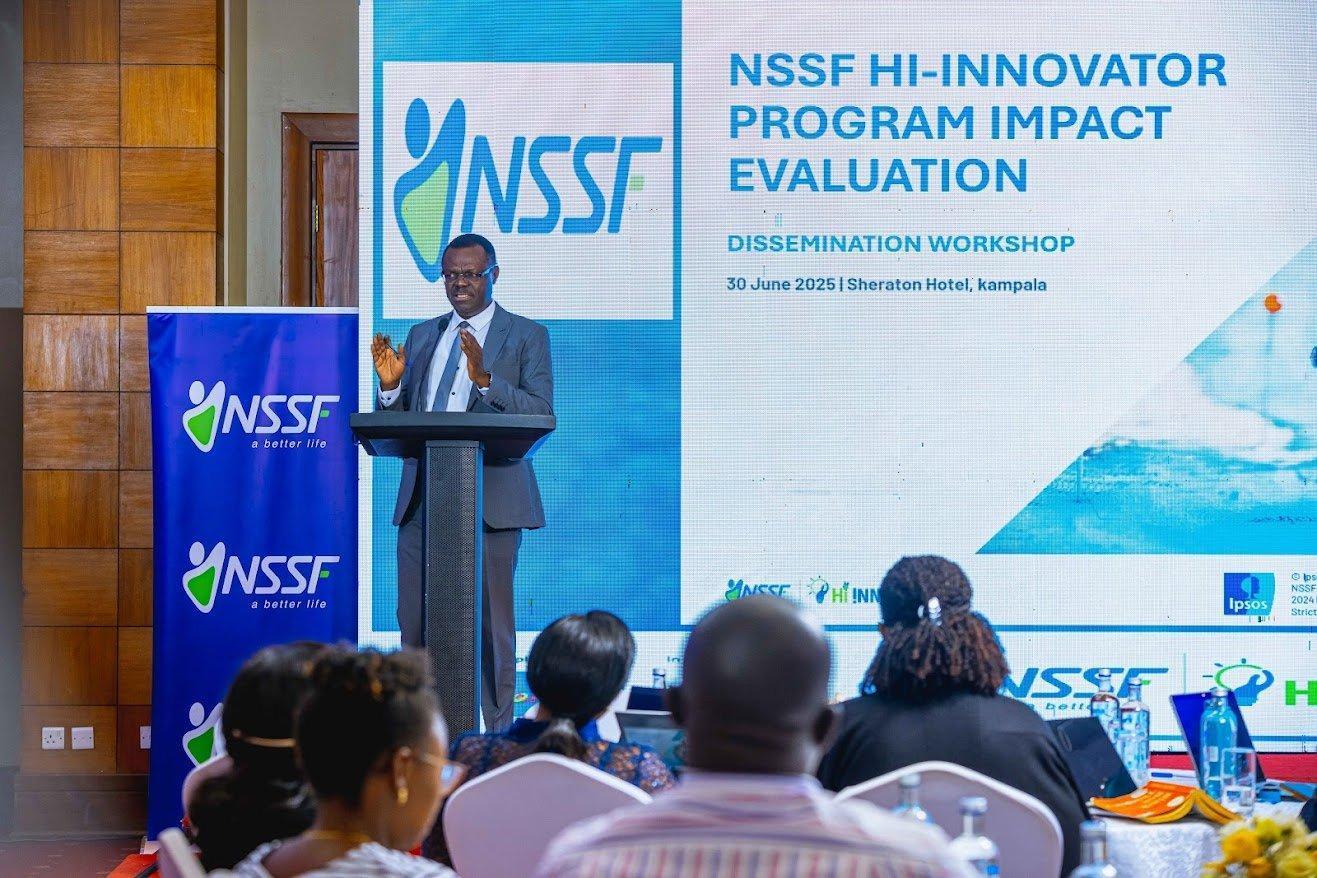Africa-Press – Uganda. A study done by Ipsos has indicated that the Hi-Innovator program started by the National Social Security Fund( NSFF) has helped create 202,323 jobs in five years.
The NSSF Hi-Innovator implemented Outbox Uganda in partnership with Mastercard Foundation aims to support small and growing businesses by extending catalytic seed funding, building the capacity of entrepreneurship support organisations to provide quality technical assistance and working with financing institutions to unlock affordable patient capital so that they can become more competitive.
Releasing the results of the study on Monday at Kampala Sheraton Hotel, Linda Nsabagwa, the Senior Research & Evaluation Executive at Ipsos Uganda said the survey indicated that of 202,323 jobs created surpassed the target of 132,000 that NSSF had envisaged.
“Of the 202,323 jobs, there were 31,990 women employed being direct and 16,698 being indirect. The survey also shows that the total number of individuals in direct jobs is at 38,563 while 163,760 are indirect,” Nsabagwa said
The Results
The results by Ipsos indicate that the 202,323 jobs created across all sector indicate an overall achievement of 153% ,exceeding the expectations but on the other side, the program fell short in terms of women’s employment with only 31,990 women employed, representing 35% of the 92,400 targets for women in work.
Agriculture, at 22% takes the lion’s share of sectors in which people from startups supported by NSSF are employed.
Trade at 17%, health(10%), finance(10%), education(8%), digital economy(7%), creative industries(6%) and manufacturing( 5%) are the other sector in which employment has been created by the program.
“Data from the survey shows that one business in agriculture /agro-processing / agribusiness sustains an average of 1.53 (approximately 2) direct jobs and one business in manufacturing (including light manufacturing) sustains an average of 1.89 (approximately 2) direct jobs. This is lower than the initial assumption of 9 direct jobs per business in these sectors,” the survey says.
The survey also shows that each business in other sectors sustains at least two direct jobs and four indirect jobs.
“The NSSF Hi-innovation program has been largely successful in providing relevant and effective training to participants. A significant majority (74.2%) of learners found the course content highly relevant to their current challenges or opportunities. The program has positively impacted various aspects of participants’ professional lives, including business management skills, financial literacy, and problem-solving abilities.”
“There is a notable gender disparity in participation and outcomes, with male participants generally reporting higher levels of confidence and implementation of learned skills. Age also plays a role in program effectiveness, with different age groups showing varying levels of engagement and benefit from different aspects of the program.The program has had a positive impact on business creation and expansion, with 46.1% of participants either starting a new business (16.1%) or expanding an existing one (30.0%) as a result of their participation. Additionally, 44.7% of participants have created new employment opportunities, contributing to job creation in Uganda.”
NSSF Managing Director, Patrick Ayota said the program helped create new members for the fund.
“We wanted to create members. The way we could create these members was through creation of jobs. So, someone will find a job or any roles and begins to contribute to the fund. We are happy to note that so far, about shs1.7 billion has been saved with the fund from these young people who have who are working,” Ayota said.
He said the fund is happy to have funded 408 businesses that are thriving.
“In the next 10 or so years, these businesses will be more sustainable.”
Richard Zulu, the CEO for Outbox, the leading implementing partner said as part of the program, they have help businesses get technical support to build their businesses but also remain sustainable.
For More News And Analysis About Uganda Follow Africa-Press






